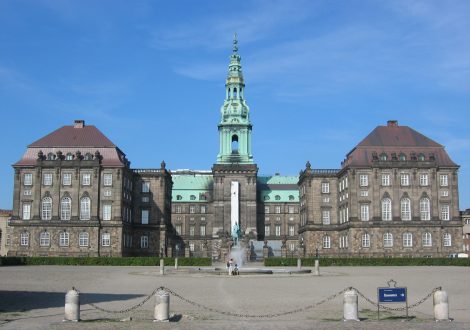
On 2 December 2020, the majority of political parties entered into an agreement to advance the payment of the last of frozen holiday funds. The agreement is part of a comprehensive package of initiatives that aims to stimulate consumer spending in a society that continues to be characterized by restrictions on economic activity as a result of COVID-19.
Up and until 1 December 2020, it was possible for employees to apply for up to 3 weeks of frozen holiday funds. As of the deadline on 1 December, a payment of DKK 51.6 billion had been requested by employees and in total 2.3 million employees have had their frozen holiday paid out. Employees who did not request holiday funds in the first round can, with the new agreement, withdraw up to five weeks of frozen holiday funds in one application.
In the new agreement, the parties have agreed that the payment of the remaining two weeks’ holiday funds must take place from March 2021 at the earliest. The payment is expected to involve emergency legislation, which the parties to the agreement undertook to vote in favor of. The government will involve the social partners in the specific implementation of the law.
Financing
The payment of the remaining holiday funds will be based on the reports from the employer but will otherwise be based on the same principles as the early payment in the autumn of 2020. The report and the payment of the excess holiday should take place no later than 15 November after the end of the holiday year.
The state continues to fund the early payment of the frozen holiday fund, which means that employers can still choose between paying the funds into the holiday fund or keeping the frozen holiday funds as liquidity in the company. The frozen holiday funds that will not be withdrawn will remain in LD Fonde, which currently manages the frozen holiday funds.
Voluntary payment
The payment of the remaining holiday funds will, as in the autumn of 2020, be voluntary. The payment of holiday funds will be taxed as ordinary income. As a rule, the payment will not result in a deduction in income transfers, etc.
It will still only be “real employees” who can receive an early payment of holiday funds. “True directors” are not employees in accordance with the Holidays Act. There are many titles that can give the impression that an employee holds a position as a director, without this being the case. It is therefore never sufficient simply to look at an employee’s title when deciding whether an employee is covered by the Holidays Act, or whether he or she is alternatively a “genuine director”, and thus not covered by transitional rules in connection with the transition to a new Holidays Act.



Thanks to the following contributors to the website: Steen Evald (photograph), Stine Heilmann (photograph), Count Pictures (video), Kunde & Co. A/S (design), WeCode A/S (coding)